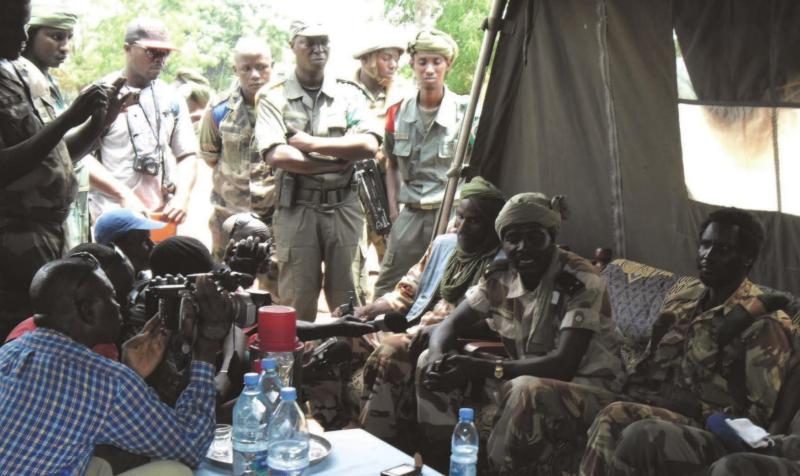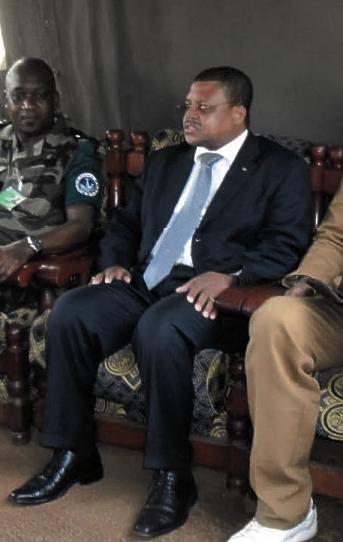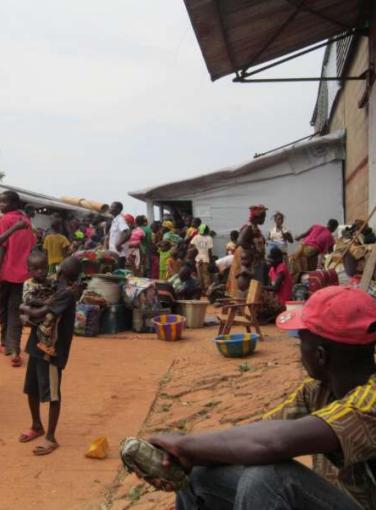 The top military leaders of the Central African militia Séléka, General Arda (l) and General Issa (r) © Gouv. centrafricaine/afrol NewsHuman rights | Politics Central African Republic falling apart
Séléka leader Michel Djotodia proclaimed himself as transitional president of the Central African Republic on 25 March this year, and since that, he has promised to lead the country towards full-fledged democracy and organise elections no later than 2014.
Looting and abuses At the same time, the UN refugee agency UNHCR reports that there now is a second wave of civilians escaping abuses in the Central African Republic. At least 30,000 refugees have already left the country and arrived neighbouring Congo (Kinshasa), while another 8,000 have settled in Cameroon and Chad. And there is a steady stream of new arrivals. Central African refugees in Congo told UNHCR officials about new abuses from the Séléka militia in Bangui, where the uncontrolled fighters keep looting private homes and shops. Last week, the militia opened fire on local residents that protested against the looting and abuses. The international society now is protesting against the ever-increasing lawlessness in the country. Jeffrey Feltman, a senior representative for the UN Secretary General, yesterday visited Bangui to gather information about the situation. "Those who have seized power must shoulder their responsibilities and control those elements under their command," Mr Feltman stressed at a press conference in Bangui yesterday. The UN representative also held talks with the Central African Prime Minister, Nicolas Tiangaye, who was appointed as a unity figure after peace talks in January this year and is held high by the UN. The primary mission of Mr Tiangaye is organising a democratic transition and elections, but he is said to have little control with the situation since Séléka took power one month ago. Mr Feltman avoided official talks with any Séléka representative during his stay. While the UN and African Union (AU) demand elections and the "return to constitutional order" in the Central African Republic, Mr Feltman said that "foremost at this time is the urgent need to establish law and order throughout the country and to protect civilians from abuse." He strongly criticised the documented increase in murder, looting, rape, attacks on civilians and human rights abuses. Also the International Criminal Court (ICC) in The Hague yesterday voiced its interest in the situation. ICC Presecutor Fatou Bensouda said the situation in the Central African Republic was "under close scrutiny by my office" and that she would "not hesitate to prosecute those responsible" for the violence in the country, which could amount to war crimes. By staff writer © afrol News - Create an e-mail alert for Central African Republic news - Create an e-mail alert for Human rights news - Create an e-mail alert for Politics news
On the Afrol News front page now
|
front page
| news
| countries
| archive
| currencies
| news alerts login
| about afrol News
| contact
| advertise
| español
©
afrol News.
Reproducing or buying afrol News' articles.
You can contact us at mail@afrol.com









